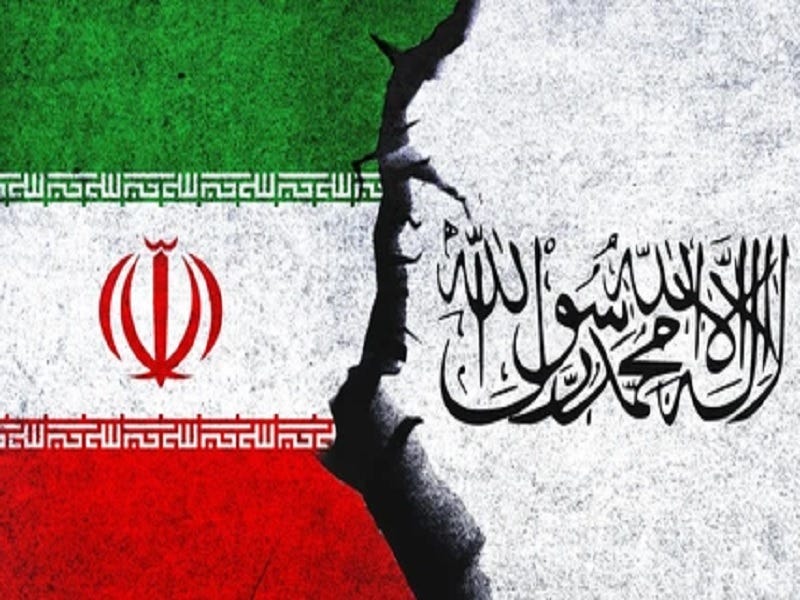The best outcome for the region would be for the SCO to get involved as a neutral mediator upon these two’s request seeing as how Iran is now a formal member while Afghanistan is an observer. That could help decelerate the erosion of bilateral trust, avert potential clashes between them that one or both might soon calculate could opportunistically fulfill the role of a “pressure valve” for domestic political reasons, and meaningfully move everything closer towards a peaceful resolution.
Iranian-Taliban relations are deteriorating amidst a serious dispute over water rights after President Raisi suggested that Afghanistan’s de facto leaders were withholding water from the Helmand River in violation of a 1973 treaty on sharing its resources. He urged them to allow Iranian experts to check the water levels there to confirm that side’s claims that it’s drought and not dams or politics that’s to blame. A Taliban official then mocked Iran in a viral video that further inflamed tensions.
From the little that’s publicly known about this issue, it appears as though this armed group is making a power play against its western neighbor, the intent of which might be to secure formal recognition of its rule in exchange for complying with the abovementioned treaty. Another hypothesis is that there are implicit sectarian motivations at play whereby the Taliban is purposely provoking majority-Shiite Iran in an attempt to consolidate its radical base in the face of rising socio-economic challenges at home.
The last two possibilities are less likely than the first two but still can’t be discounted. The recent stabilization of Taliban-Pakistani ties might be due to a secret pact on the TTP, which was responsible for almost pushing them to war earlier this year, but the details could be too sensitive for this armed group to acknowledge so it prefers distracting its people via this crisis with Iran. The final explanation is that the Taliban are pressuring Iran at the US’ behest or with the intent of being rewarded by it afterwards.
It could even be that a blend of these motivations is behind the Taliban’s decision to provoke this latest round of troubles in bilateral ties, but at any rate, it’s highly irresponsible for them to do this. Iran has no reason to invent a crisis out of thin air, especially since it’s positioning itself as an indispensable player in Eurasian integration processes via its membership in the SCO, rapprochement with Saudi Arabia, and role in facilitating the game-changing North-South Transport Corridor (NSTC) with Russia and India.
For this reason, it should be assumed that there’s truth to Tehran’s innuendo that the Taliban initiated this crisis for political purposes that have nothing to do with the regional drought. While that armed group might have convinced itself that it’ll gain something tangible from this latest crisis that it provoked, the reality is that this is a risky gamble that’ll likely result in further eroding key stakeholders’ trust in their self-proclaimed peaceful intentions and reliability as a partner.
Russia, India, and China, which collectively function as the core of BRICS and the SCO via their RIC format, aren’t going to be pleased by this latest development since it impedes their respective plans for Eurasia. Any potential Taliban-Iranian clashes could put pressure on each of those multipolar Great Powers to distance themselves from that armed group in order for their much more important partners in the Islamic Republic not to suspect that they don’t care about its legitimate national interests.
The more isolated the Taliban becomes, the greater the chance that they could either “go rogue” or decide that they need to partner with Pakistan and/or the US out of desperation despite the likelihood that they’d become those countries’ “junior partners” with time in that case. Both scenarios are detrimental to RIC’s multipolar interests in Eurasia since they could lead to the Taliban once again harboring groups that those three consider to be terrorists and which could be used to destabilize them.
The best outcome for the region would be for the SCO to get involved as a neutral mediator upon these two’s request seeing as how Iran is now a formal member while Afghanistan is an observer. That could help decelerate the erosion of bilateral trust, avert potential clashes between them that one or both might soon calculate could opportunistically fulfill the role of a “pressure valve” for domestic political reasons, and meaningfully move everything closer towards a peaceful resolution.
For that to happen, both sides need to request the SCO’s services, or at least those of one state or a group thereof like Russia and India for instance. In the event that only one asks for this, then the other will be regarded with suspicion by key stakeholders since it would seem like they have something to hide by not wanting neutral third parties to investigate the matter. Hopefully Iran and the Taliban will both seek outside mediation as soon as possible so that this emerging fault line doesn’t destabilize the region.




